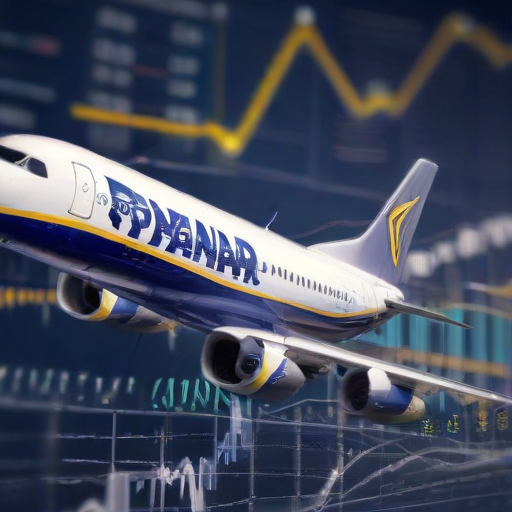Ryanair is facing challenges with its business performance, leading to disappointment among its investors. The Dublin-based budget airline has seen its stock decline by 17% following a quarterly earnings report that fell short of expectations. The airline reported revenues of €3.6 billion ($4 billion), which remains constant compared to the previous year, but profits plummeted nearly 50% to €336 million. CEO Michael O’Leary noted that while passenger numbers grew by 10% to 55 million, achieving this growth has come at a significant cost.
During the earnings call, O’Leary emphasized that stimulating demand through competitive fares is crucial, yet close-in bookings have shown disappointing performance, particularly leading into the busy summer months. The airline is also grappling with rising labor costs and has pointed fingers at Boeing for its delays in aircraft deliveries, which have long been a concern for the CEO. Despite these issues, he has remained supportive of Boeing, calling for improvements over the years.
O’Leary further observed that consumers in the European Union appear to be feeling the effects of ongoing inflation and slow economic growth, which may lead to lower capacity for the airline. He mentioned that Ryanair will have reduced fleet capacity for the summer of 2025, resulting in two years of minimal growth. While this might seem concerning, there is a silver lining; O’Leary suggested that operating with fewer aircraft could potentially benefit Ryanair as consumers face financial pressures.
In summary, while Ryanair is currently navigating a turbulent period with declining profits and stock prices amid economic challenges, there is potential for recovery by strategically managing its capacity and adapting to changing consumer behaviors. The airline’s growth in passenger numbers suggests a resilience in demand, which, if aligned with operational efficiency, could pave the way for a more stable future.
